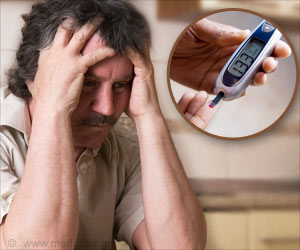Job strain may be linked to increased risk of premature death for men with cardiometabolic disease

‘Job strain is associated with an increased risk of premature death in men with coronary heart disease, stroke, or diabetes.’





"Work is a common source of stress in adulthood, triggering natural stress responses that were programmed in our bodies generations ago. These can result in physical reactions to situations like work stress, and our findings give evidence for there being a link between job strain and risk of premature death in men with cardiometabolic diseases, such as coronary heart disease, stroke, and diabetes," says Professor Mika Kivimäki, UCL, UK. "These findings suggest that controlling blood pressure and cholesterol levels alone are unlikely to eliminate the excess risk associated with job strain in men with cardiometabolic disease. Other interventions might be needed at least for some patients - possibly including stress management as part of cardiovascular disease rehabilitation, job redesign, or reducing working hours. However, more research will be needed to identify which specific interventions might improve health outcomes in men with coronary heart disease, stroke, or diabetes." [1] The study, which began in 1985, is the largest of its kind and includes seven cohort studies from Finland, France, Sweden, and the UK. It included 102633 men and women - including 3441 with cardiometabolic disease (1975 men and 1466 women) - who were given a questionnaire on their lifestyle and health at the start of the study. Participants' medical records were tracked for an average of 13.9 years, and during this time 3841 participants died.
The study included two types of work stress; job strain (having high work demands and low control over them) and effort-reward imbalance (putting in lots of effort, but getting little reward in return).
After controlling for socioeconomic status and several conventional and lifestyle risk factors (including high blood pressure, high cholesterol, smoking, obesity, physical inactivity, and high alcohol consumption), the authors found that, among men with cardiometabolic disease, those experiencing job strain had a 68% greater risk of premature death than men who had no job strain [2].
In addition, this increased risk was even present in men with cardiometabolic disease who had achieved their treatment targets, including those with a healthy lifestyle (including not being obese, being physically active, not smoking, and not drinking heavily), blood pressure, and cholesterol levels.
Advertisement
Neither type of work stress was associated with increased mortality risk for women with or without cardiometabolic disease.
Advertisement
The authors note some limitations, including that the study only measured cardiometabolic disease and work stress at the start of the study, meaning it does not account for severity of disease or how it changes over time. The study did not control for blood pressure or cholesterol levels in all cohorts due to missing data, and this could lead to a small overestimation of the effect of job strain.
Equally, the authors note that people with more severe cardiometabolic disease tend to shorten their working hours, and this reduced effort may explain why there is no association between effort-reward imbalance and risk of premature mortality in men with cardiometabolic disease.
Writing in a linked Comment, Yulong Lian, Nantong University, China, says: "Although the authors argue that the difference in findings between the models might be related to different sources of stress and reduced effort in people with severe illness, other important prognostic factors associated with cardiometabolic disease might have biased these findings. The prevalence of poor mental health, such as psychological distress, clinical depression, and anxiety, is higher among patients with cardiometabolic disease than in the general population. Furthermore, compared with people with no stress, those with work stress tend to have a higher prevalence of poor mental health... Nevertheless, their results are provocative and encourage careful attention to work stress reduction among patients with cardiometabolic diseases... Further research into the mechanisms responsible for the these differences in the effects of work stress would not only improve understanding of the prognosis of cardiometabolic disease, but also inform health policy makers and guideline committees about the need for sex-specific workplace interventions for the treatment and management of cardiometabolic disease."
Source-Eurekalert











